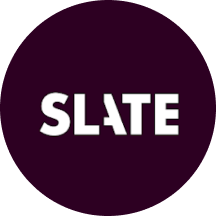An Indian man will not recover $15,000 he paid to a fixer in a failed attempt to extend his work permit in Canada. The Alberta Court of Justice ruled that the contract was illegal, and therefore, he is not entitled to a refund. Ritik Sibbal filed a lawsuit against Rajiv Chourhary Nathyal after Nathyal failed to secure a letter of endorsement from the City of Grande Prairie, which Sibbal believed would allow him to continue working in Canada and pursue permanent residency. Justice Susanne Stushnoff noted in her decision that Sibbal understood the endorsement was crucial for his immigration status. He testified that Nathyal had promised to return the $15,000 if the letter was not obtained. However, after the application was denied, Nathyal did not return the money. "Sibbal was very poised before the court and presented as a smart and articulate individual. He was motivated to enter into an illegal contract due to his authentic desire to become a permanent resident of Canada," Stushnoff wrote in her ruling dated November 7. Sibbal moved to Canada in April 2019 to attend business college in Vancouver. After graduating, he received a three-year work permit. He relocated to Grande Prairie in August 2023, believing that the city’s rural designation would simplify the process of obtaining a letter of endorsement. Sibbal had several jobs in Grande Prairie, expecting his employers would assist him with the necessary documentation. When those opportunities fell through, he became anxious as his post-graduate work permit was set to expire in August 2024. In early 2024, after consulting various immigration lawyers, Sibbal met Nathyal, who offered to help him for a fee of $35,000. Sibbal paid $15,000 upfront, stating he felt he had no choice due to the impending expiration of his work permit. Nathyal claimed he would obtain the letter of endorsement by falsely stating he would employ Sibbal. However, Sibbal testified that he did not receive any written agreement because both men were aware the contract was illegal. Sibbal paid Nathyal in cash in February 2024, but after several months of no communication, he learned that Grande Prairie had denied the endorsement. In a subsequent meeting, Nathyal suggested that Sibbal pursue a "fake refugee case," which Sibbal declined after consulting with his parents. When Sibbal inquired about a refund, Nathyal promised to return the money but failed to do so. The last communication from Nathyal was on September 12, 2024, when he claimed he had not received a payment he was waiting for. The court found that while the contract was breached, it could not be enforced due to its illegal nature. Stushnoff stated that both men were equally at fault, emphasizing that Sibbal did not approach the court with "clean hands." The judge highlighted the importance of maintaining the integrity of the legal system, stating that enforcing illegal contracts undermines Canadian immigration laws. In February, Grande Prairie paused its Rural Renewal Stream Immigration program, citing changes in federal and provincial immigration policies that reduced available immigration spaces in the province.
Indian Man Loses $15,000 in Illegal Immigration Contract
 Local News in British Columbia2 hrs ago
Local News in British Columbia2 hrs ago
81


 National Post Politics
National Post Politics Seaforth Huron Expositor
Seaforth Huron Expositor County Weekly News
County Weekly News Canada News
Canada News CTV News
CTV News  CBC News
CBC News The Daily Beast
The Daily Beast Raw Story
Raw Story Slate Politics
Slate Politics FOX News Health
FOX News Health Post Register
Post Register